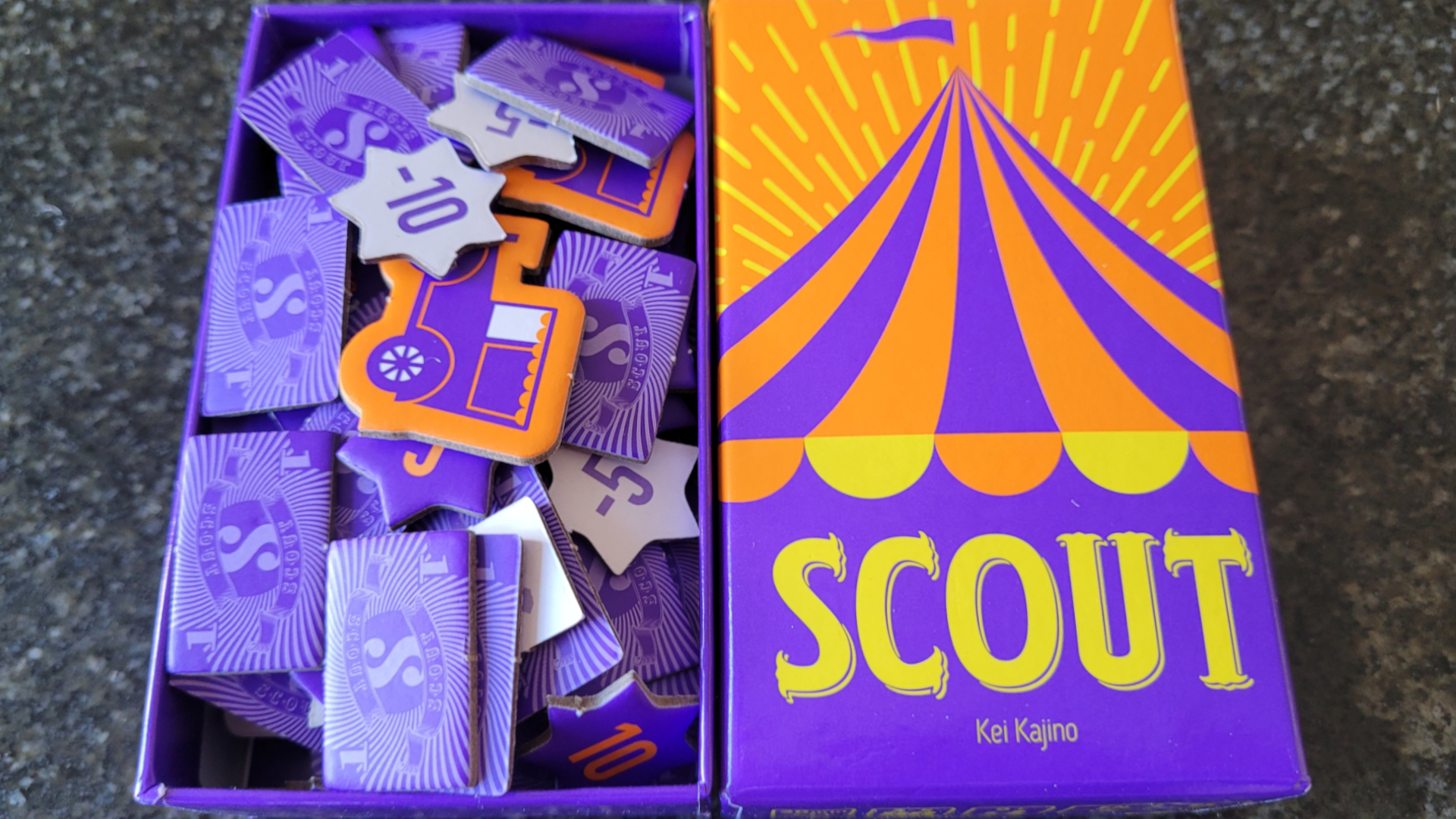GamesRadar+ Verdict
Scout may seem simple at first, but its emphasis on speed and uncertainty make for an addictive "just one more match" feeling that's hard to beat.
Pros
- +
Easy to learn, fast to play, and very addictive
- +
Surprising amount of nuance within accessible rules
- +
Great for playing with families and non-gamers
Cons
- -
Simple framework and significant random factors may limit appeal
- -
Pointless theme
Why you can trust GamesRadar+
Scout is something of a departure from the norm for us. While most of the games that cross our tables were designed in Europe or the US, there’s also a thriving board game scene in Japan… but popular titles don’t always get a western edition because of translation issues. Japanese publisher Oink Games is an exception, putting out lots of its bright, iconic small-box board games in different languages.
It scored a particular hit with Scout recently, a card game that got nominated for one of gaming’s biggest prizes - the Spiel des Jahres - in 2022. This means lots of gamers suddenly got very curious about the small company. And even though it didn't win, a nomination comes with more than enough prestige to generate buzz. So, is the fuss warranted?
What is it, and how does it work?
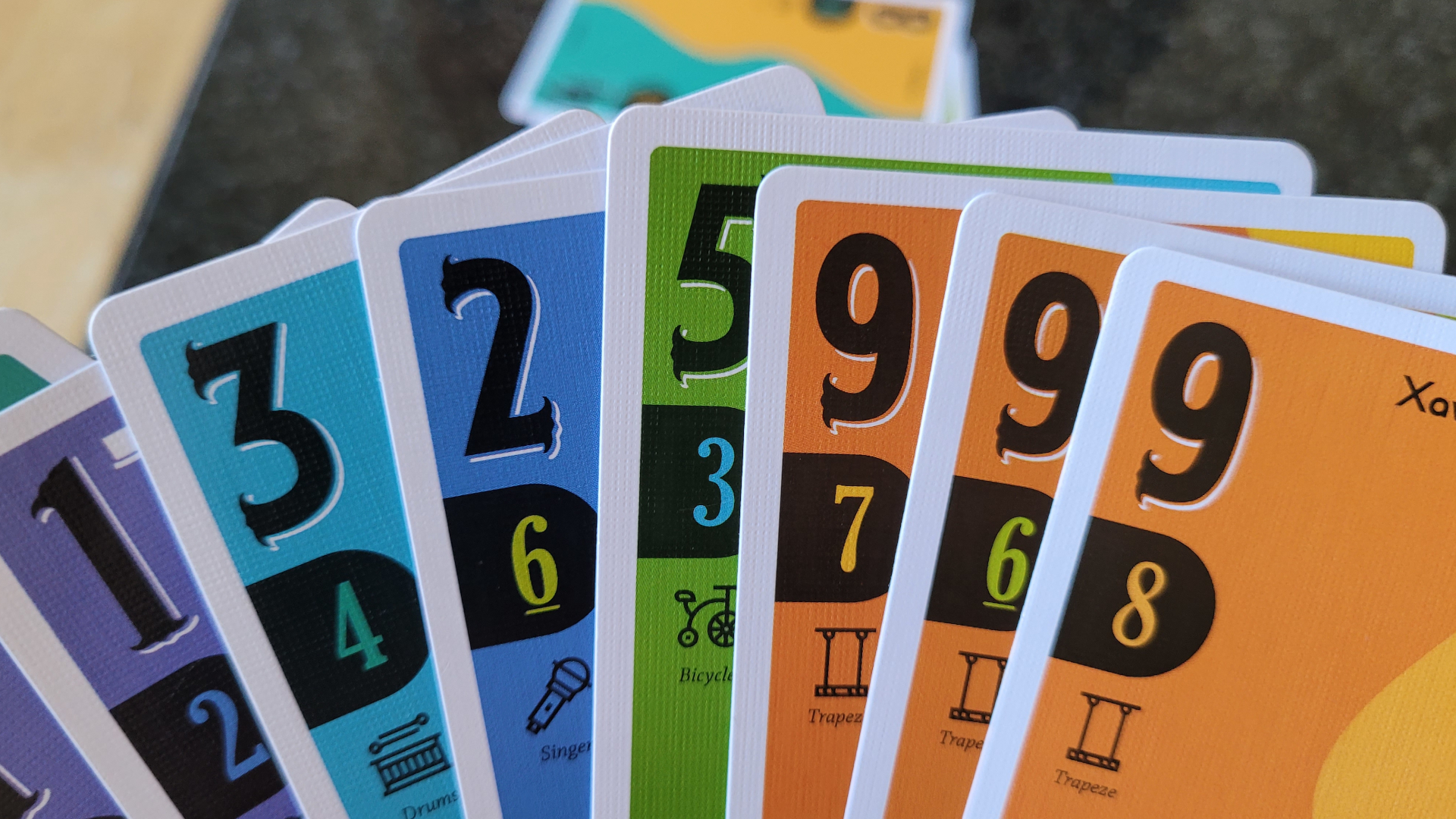
- Type: Card game
- Players: 2 - 5
- Difficulty: Easy
- Lasts: 20 mins
- Ages: 9+
- Price: $30 / £16
- Play if you enjoy: Sushi Go
Scout consists of a deck of cards and a slew of cardboard tokens. Each card is printed with a name and circus act in a nod to the game’s unnecessary theme of recruiting circus performers and staging shows. But these have no gameplay effect and can be ignored: what you’re really interested in are the two numbers on the card, one at the top and one at the bottom, which range from one to ten.
All the players get the same number of cards in the deal but, crucially, they’re not allowed to change the order in which they were dealt. All they can do, if desired, is turn their hand upside-down, so that the other set of numbers at the bottom of the cards are active in play instead. What you’re looking for are either sets of the same number or a sequential series with no gaps (the latter is better than the former).
Rounds can end very suddenly
The first player then lays such a sequence from their hand onto the table (it can be a “set” of a single card if desired). Following this, the next player has to try and beat it with a set that either contains more cards or has the same number of cards but of higher value. If they can, they win the cards on the table as points.
If not, they “scout” the face-up cards, taking one from either end of the set. They must add this card to their hand but can do so in any position and either way up, making it easier for them to form sets or sequences themselves. However, the original player who laid those cards gets a point.
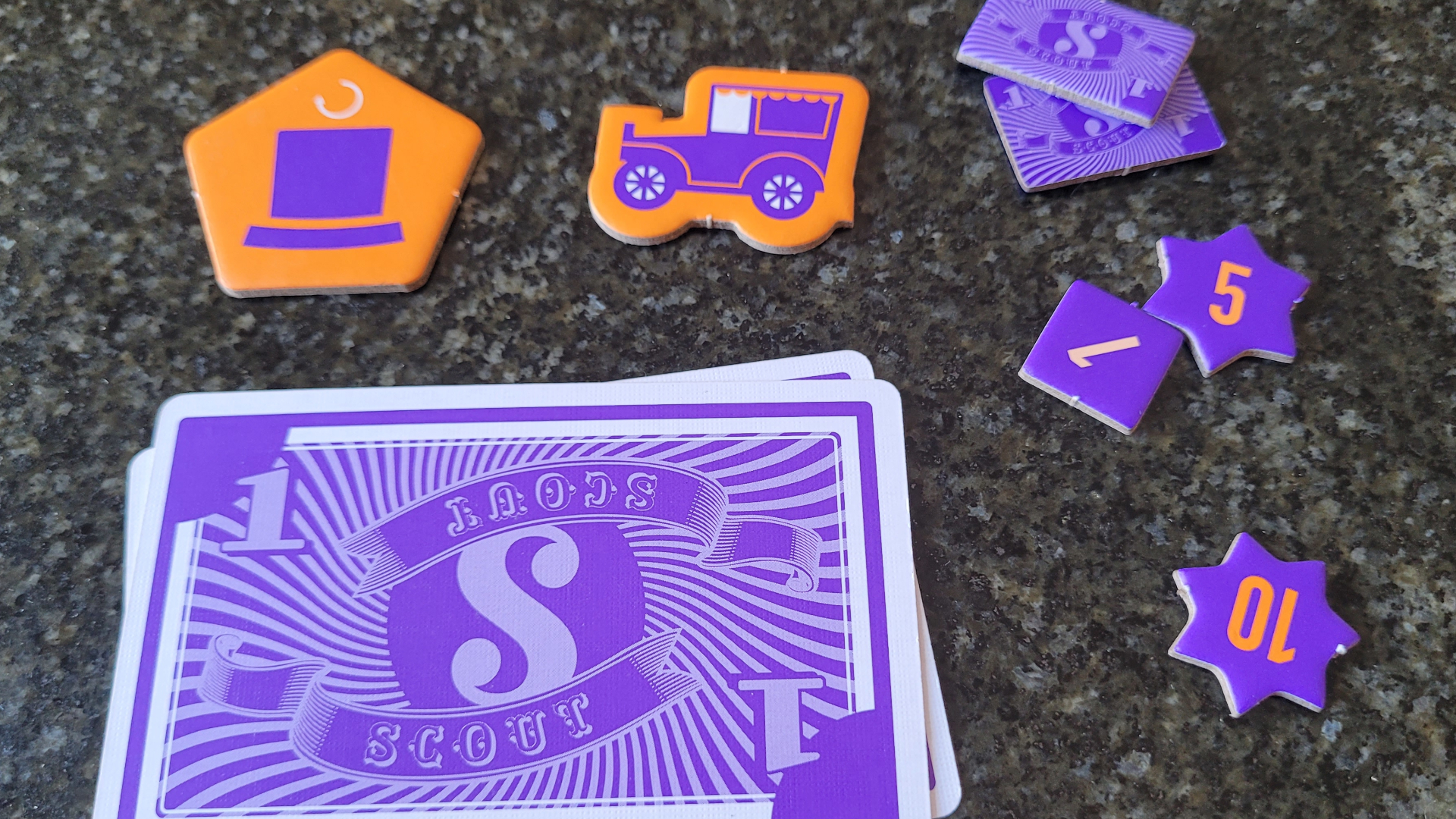
Things are complicated by a special action, Scout and Show, that can be taken once per round and which allows you to both “scout” and then play cards from your hand if you can then beat the active set on the table.
Regardless, this carries on until one player either runs out of cards or all the players in turn “scout” because they can’t beat the laid hand. This last rule means rounds can end very suddenly.
Once it's all over, players tot up the points they’ve won and subtract the number of cards they have left in hand and record a running score. The player with the most points after as many rounds as there are players wins the game overall.
Is it any good?
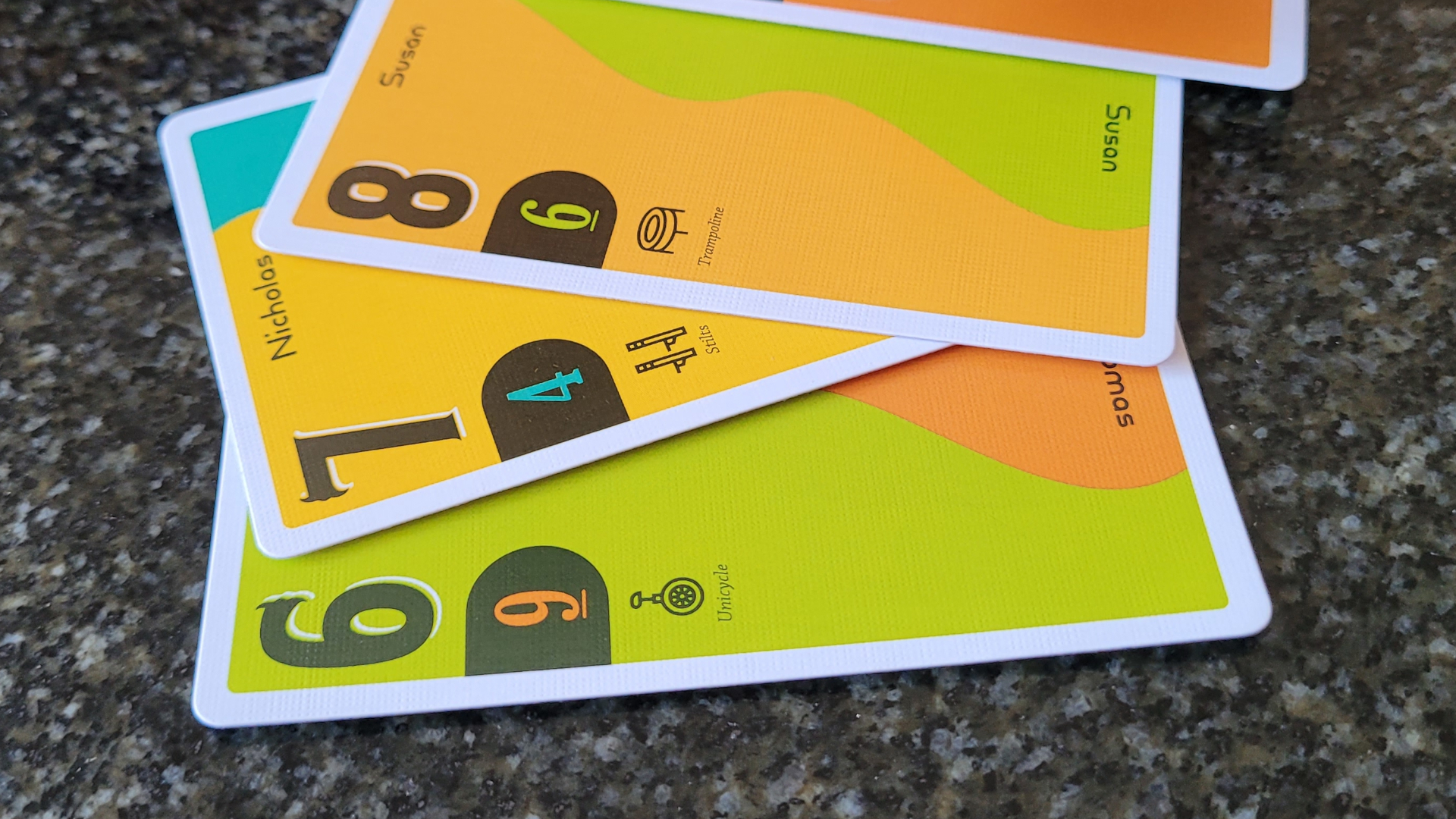
The first round of Scout that you play will leave you wondering what all the fuss was about. By the time of the last round, though, you’ll be rushing to rack up and play it again. What initially looks like quite a simple trick-taking game in terms of rules and time turns out to be anything but with regards to actual gameplay.
What drives this addictive quality is the speed of going around the table combined with the uncertainty of the deal. Because you can flip your cards at the start of a round, it’s quite possible to get a lucky hand in Scout and blow out the opposition. However, if you don’t get a lucky hand, you can still turn the tables on someone who has if you get a good choice of cards to add to your hand as the game progresses. This combination lends it a terrifying “just once more” feeling, that you could be the lucky player next, which can keep everyone playing into the small hours. It's the sort of feeling that makes another one of the best card games, Sushi Go, so dangerous.
There’s plenty of tension and skill in each card play
But while luck matters, don’t be fooled into thinking it’s the be-all and end-all of Scout. It’s all about timing, balanced by its two game-ending rules. If you can play out your hand fast, you’ll emerge with the highest point total for the round, but there won’t be much in it (other players will have had a chance to deplete their hands and win points themselves). Meanwhile, you can also win by building a meld so powerful that no one can beat it. That’s harder, but it’ll win you a much bigger points margin as well as the enmity of your opponents who are stuck with negative overall round scores.
As a result, although the turns pass quickly, there’s plenty of tension and skill in each card play as you balance the game factors and decide what to do. If someone keeps picking up, you’re left wondering whether they’re unlucky, or building a killer play. Card counting can help, but there’s still a lot of excitement toward each round end. And it’s astonishing how often the game can swing as a leading player gets stuck with a weak meld they can’t get rid of to end the round.
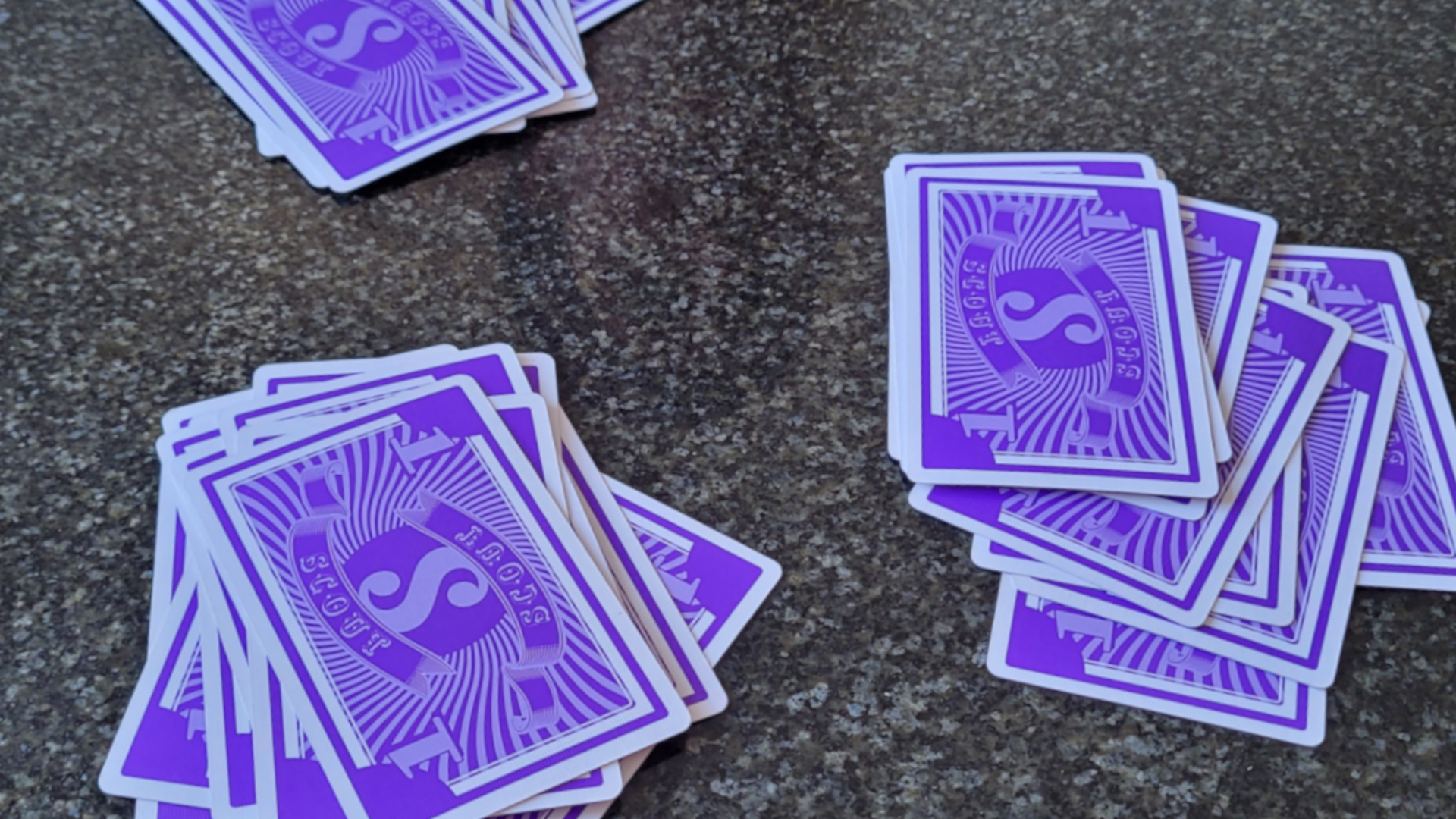
This is where clever use of the special Scout and Show action comes into its own. The temptation to use it is constant because it can often mean the difference between having to pick up or netting a haul of points. However, saved until late in the round, it can make the bigger difference between ending the round as the leader and getting stuck while others overtake you. Leave it too late, though, and you won’t get to use it at all.
While there is plenty to enjoy about Scout, it definitely works best with three or four. The Oink Games edition comes with special rules for two, which are fine, but they add a bit of complexity and it’s still not as good as multiplayer. Five has a lot of dynamism but it means playing five rounds per game, which is a stretch for a relatively light title like this.
Still, its speed and simplicity make it a superb game for friends and one of the better board games for families.
Should you buy Scout?
Aside from the fact that Scout costs quite a lot for what’s essentially a deck of cards, it’s hard not to recommend it. Even the toughest, most grizzled strategy gamers need a break from grinding mental gears now and again, and Scout makes a great candidate; it's fast, fresh, and with just enough nuance to make each hand interesting. For everyone else, it’s a shoo-in, a game that can be enjoyed by casual players and hobbyists alike, although the latter will be lured away by meatier, shinier fare eventually.
How we tested Scout
This board game was tested thoroughly in multiple hands-on matches with varying amounts of people to give a better idea of how it performs with different player numbers.
To find out more about how the site handles tabletop critique, check out our guide on how we test board games and tabletop RPGs at GamesRadar+.
For more suggestions, be sure to check out these board games for adults, the ultimate board games for 2 players, and the best cooperative board games.
Matt is a freelance writer specialising in board games and tabletop. With over a decade of reviews under his belt, he has racked up credits including IGN, Dicebreaker, T3, and The Guardian.
